(B) Electrical Installations
(2) General Tips for Electrical Installations
- 1.Electrical installations sometimes look complicated and technical. However, there are some general tips for you to follow.
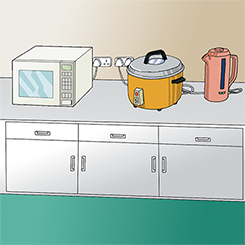
- 2.Electrical installations should always be designed according to the relevant requirements stipulated in the Code of Practice for the Electricity (Wiring) Regulations, constructed and installed with good workmanship and suitable materials, as well as suitably protected to prevent danger.
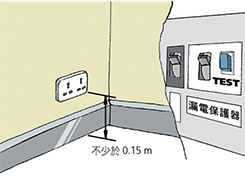
| Some general tips for electrical installations are given below: | |
1.Electrical installations must have effective earthing arrangement. To ensure safety, do not remove any earthing connection. |
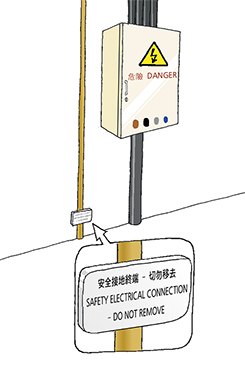 |
2.Concealed electrical wiring of new electrical installations must have suitable mechanical protection (e.g. installed inside conduits). |
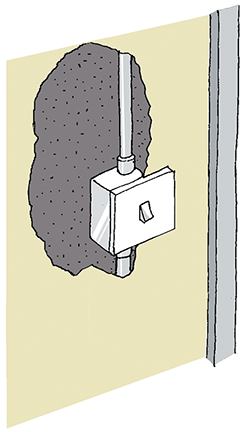 |
3.Electrical wiring must be segregated from telephone / telecommunication wiring. The wiring of these two categories must not be installed inside the same conduit or trunking unless specific safety requirements are complied with. |
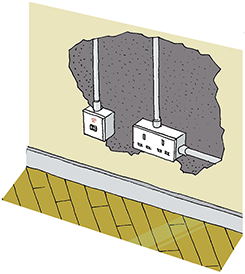 |
4.Distribution boards must have identification labels to indicate the purposes of individual circuits. |
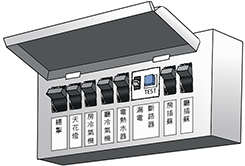 |
5.An electrical appliance with high power consumption should receive power supply from a single socket outlet. Therefore, sufficient number of socket outlets should be installed. |
 |
6.Any socket outlet installed in a bathroom must be at least 0.6 metre away from any shower and bath. |
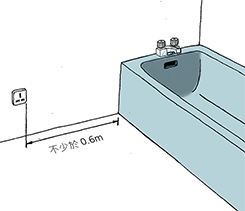 |
7.Socket outlets should be installed as far away as practicable from any water tap, gas tap and cooking range. |
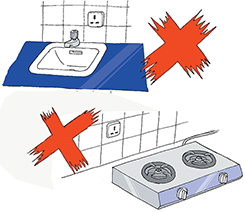 |
8.Circuits for socket outlets must be protected by a residual current device (RCD) (also called "earth leakage circuit breaker (ELCB)"). |
 |
9.Outdoor luminaires, socket outlets and switches must be of weatherproof types. |
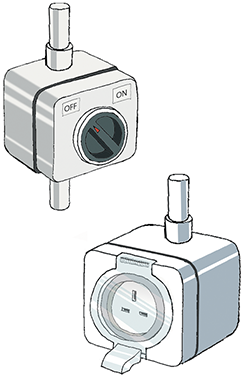 |
10.For the luminaire, exhaust fan and electric water heater inside a bathroom, the on/off switches should be installed outside the bathroom. |
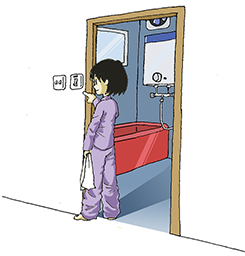 |
11.For more safety requirements on electrical installations, you may consult registered electrical contractors / registered electrical workers. |
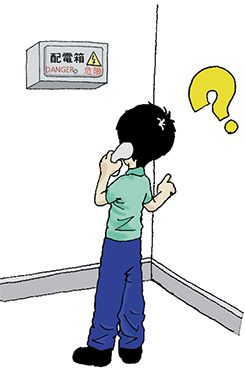 |
